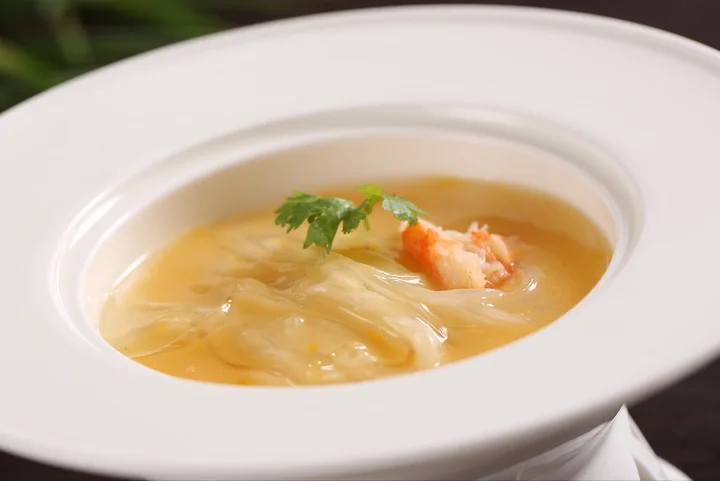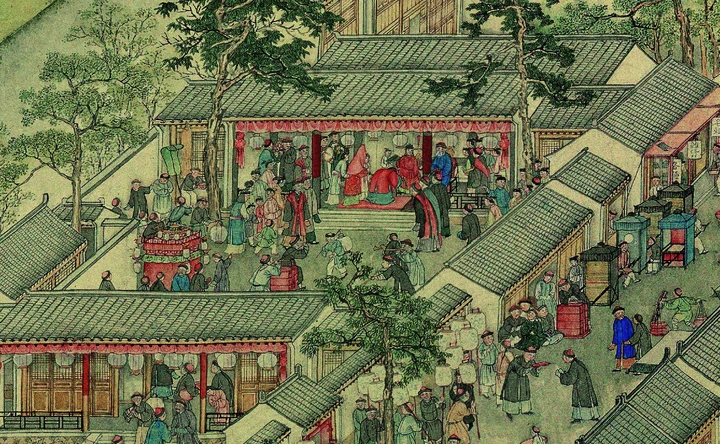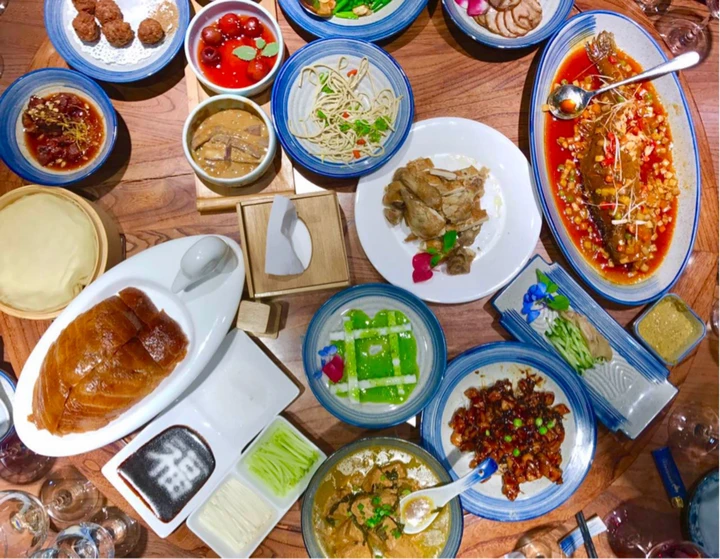China's Top Famous Cuisine - Beijing
Chinese food culture is broad and profound, with a long history. Chinese people have attached great importance to diet since ancient times. Chinese cuisine has always been praised by the world for its fine and wide selection of ingredients, complex and diverse cooking work, and exquisite shapes and utensils. In the process of the development of various cuisines, many traditional famous dishes have been created, which are second to none in color, aroma, shape and shape, and are known as the classics of Chinese cuisine. The top ten classic dishes in Beijing include Yipin Tofu, Donglaishun Shabu-shabu, Beijing Sea Cucumber Roasted with Spring Onions, Beijing BBQ, Fried Shrimp, Three Non-Stick, Braised Oxtail, Casserole White Pork, Peking Duck, and Braised Fish Maw.

1: Yipin tofu
Yipin tofu is actually a classic of the eight major cuisines of Shandong cuisine, belonging to Confucian cuisine. In the traditional method, the tofu needs to be peeled first, hollowed out in the middle, stuffed with minced mushrooms, winter bamboo shoots, scallops, sea cucumbers, pork, shrimps, etc., and then covered with tofu and steamed. Soup, garnish with side dishes. After the dish is finished, the first-grade tofu is golden and attractive, which can arouse the appetite of diners. With a bite of tofu, the tender tofu mixed with soup passes through the tip of the tongue. It is light and tender, soft and mellow, salty and delicious, and has a slightly sweet sauce aftertaste. It can be said to be a very delicious dish.
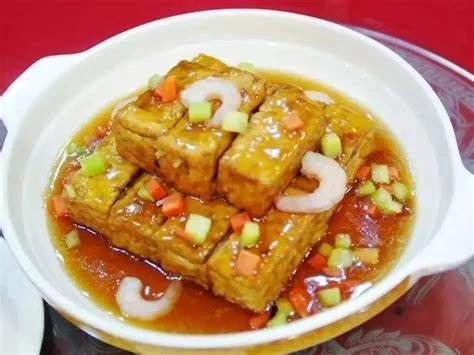
2: Donglaishun Shabu-shabu Lamb
Donglaishun mutton is a famous dish of the famous Chinese time-honored brand Donglaishun. Donglaishun's mutton has four characteristics: fine selection of ingredients, crispy sugar and garlic, fragrant seasoning, and hot pot. Famous at home and abroad, has a long history. Donglaishun has strict regulations on the quality of mutton, from the origin, species, age of the sheep to the parts of the meat used. Its mutton is fat but not oily, thin but not firewood, it is cooked immediately after rinsing, it will not get old after a long time of rinsing, it is not sticky or greasy, and it tastes delicious.
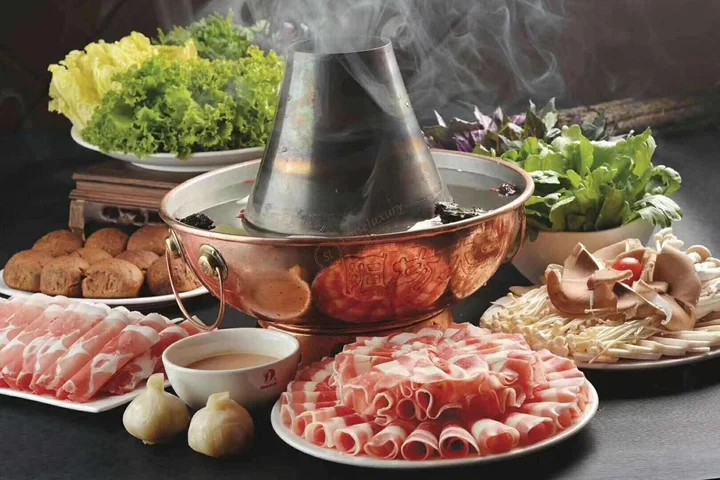
3: Beijing Sea Cucumber with Green Onion
Scallion sea cucumberis a Chinese speciality food. It is one of the “Ancient and Modern Bazhen” and was introduced to Beijing from Shandong. Wang Shizhen, a famous chef of Fengzeyuan Restaurant in Beijing,reformed it. He took the practice of “concentrating and attacking thick” on the characteristics of the strong nature of sea cucumber, and it was filled with thick juice and strong flavor. To achieve the effect of color and fragrance.
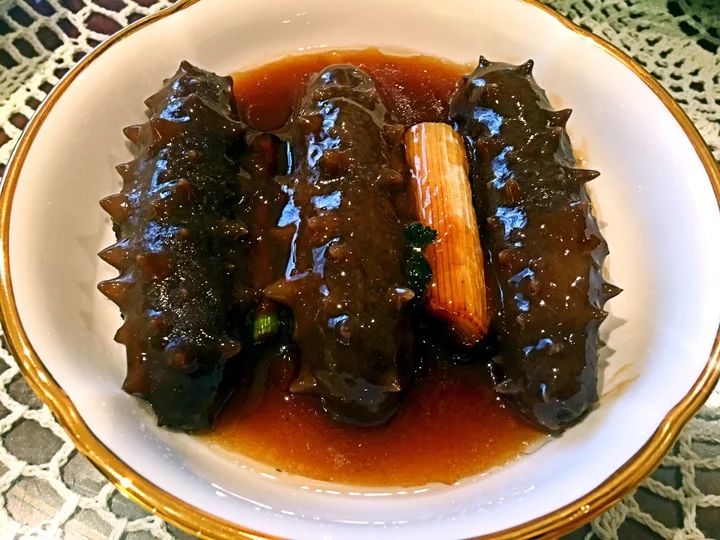
4.Beijing BBQ
Remove the tendons from the meat, freeze it in a refrigerator or freezer, and then cut the meat into thin slices; after the grilled meat is heated, rub it with raw oil, then add soy sauce, cooking wine, ginger juice, sugar, monosodium glutamate , sesame oil together in a bowl and mix thoroughly, put the sliced meat into the seasoning for a little dip. Immediately put the chopped shredded green onion on the grilled meat, then put the soaked meat on the shredded green onion, and flip it with chopsticks while roasting. Continue to flip, until the meat is pinkish white or the beef is purple, put it on a plate and eat it with sesame seeds and smashed garlic or gherkin.
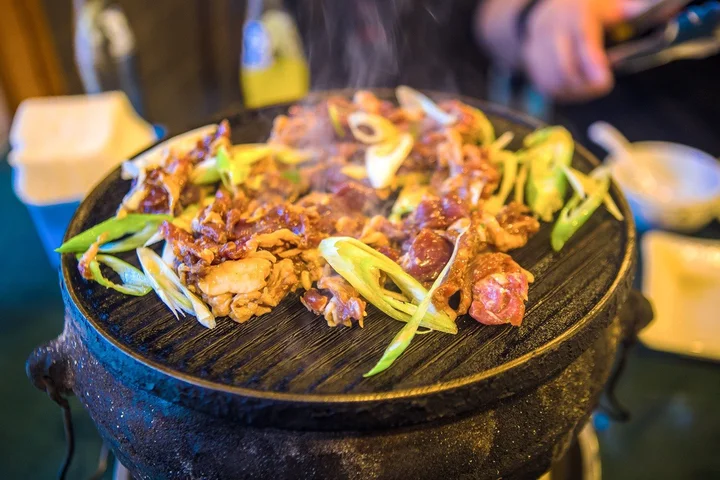
5: Fried Shrimp
"Fried Shrimp Duan" is a high-quality quick-fried dish in Shandong cuisine. It was brought to Beijing by Shandong masters a long time ago. "Fried and Cooked Shrimp Duan" used to be a house-keeping dish in the "Eight Buildings", one of the famous Shandong cuisine operators in Beijing, and it was also a representative dish of the birthplace of Shandong cuisine in the Jiaodong Peninsula. Many people misunderstand "fried and cooked shrimp segments" as "Beijing cuisine", but it is not, it is an authentic Shandong cuisine. This dish was originally brought to Beijing by a Shandong chef surnamed Li from Anfu Building, one of the famous “Eight Buildings” of Shandong cuisine in Beijing.
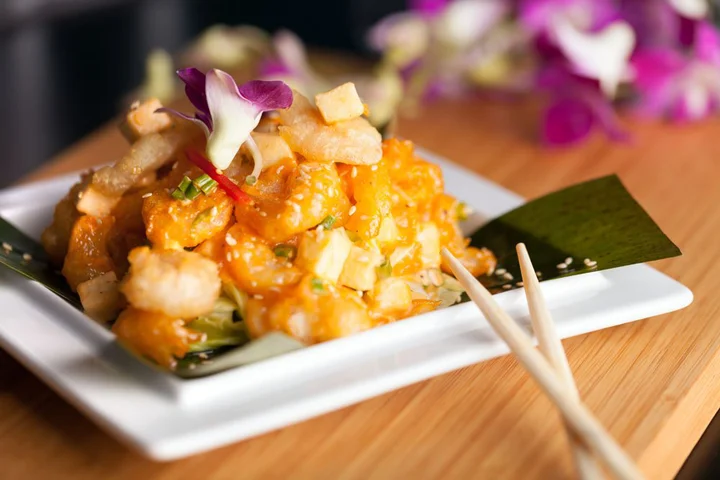
6: Three non-stick
Three non-stick, also known as San non-stick, sweet-scented osmanthus egg, is a traditional delicacy in Anyang area of Henan and Zigong city of Sichuan, made by mixing eggs, starch and sugar with water. Not only is it golden in color, it also tastes delicious. Even more amazing is that it does not stick to plates, chopsticks and teeth. So called "three non-stick", its color is golden, the eggs are tender and sweet, delicious and nutritious, especially suitable for the elderly and young children. Three non-stick is made of eggs, starch, sugar and water, stir-frying, not only the color is golden, the taste is sweet, but it is more amazing that it does not stick to the plate, chopsticks, and teeth, which is why it is The reason why it is called "three non-stick".
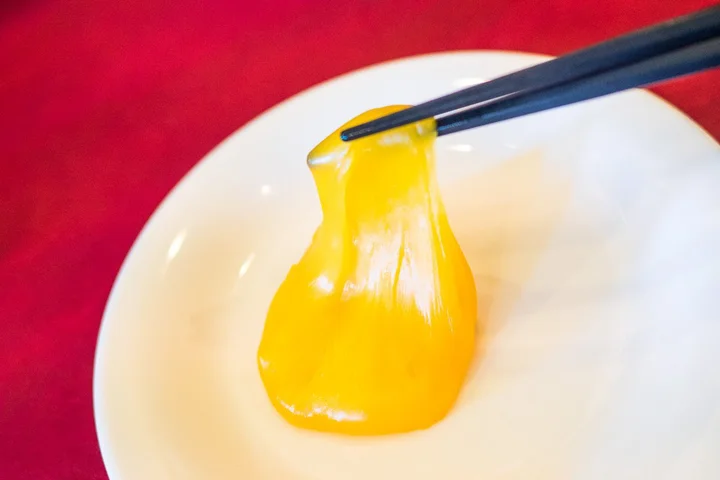
7: Braised Oxtail
Speaking of the dish of Beijing Braised Oxtail, the first thing people think of is the time-honored Hongbin Lou. Founded in the Xianfeng period of the Qing Dynasty, Hongbin Building is a halal restaurant with a very long history. Braised oxtail is a housekeeping dish in Hongbin Building. In fact, braised oxtail was the main meat of Guanzhong people as early as the Zhou Dynasty, and it was also a traditional food in Shaanxi. After being cooked, the braised oxtail looks ruddy in appearance, with loose flesh and bones, but not completely separated. The oxtail meat is cooked to a crisp, fragrant, soft and rotten, and a mouthful of gravy tastes very delicious.
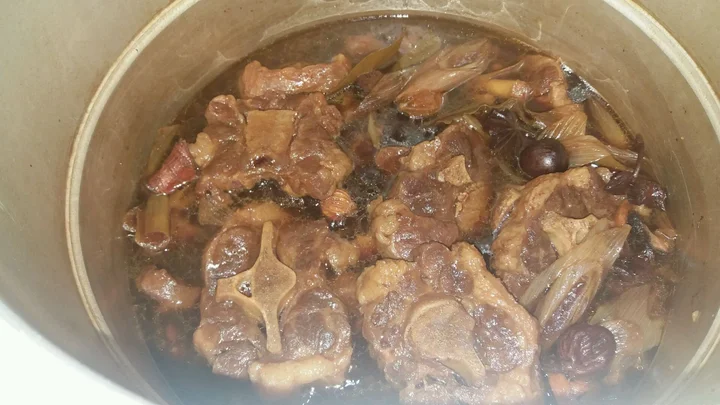
8: white meat casserole
When it comes to white meat in casserole, you may think it is relatively unfamiliar, but when it comes to another traditional famous dish, white meat with garlic, you may suddenly realize that these two dishes are both special dishes evolved from boiled meat. This casserole white meat in Beijing cuisine should actually be called sauerkraut white meat. It is cooked with pork belly and Beijing sauerkraut. Beijing sauerkraut is made with Chinese cabbage as raw material and seasoned with salt and pepper. The sour taste in sauerkraut can just relieve the greasy feeling brought by boiled pork belly, and at the same time, the sour feeling can also make people appetite. This dish looks bland and nothing special, but it tastes delicious.
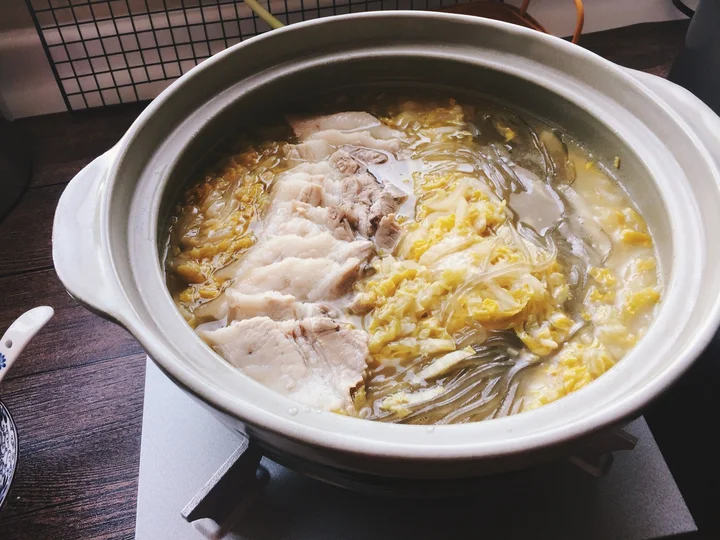
9: Peking duck
According to existing historical records, Peking duck first originated in the Northern and Southern Dynasties and was a famous court dish at that time. The duck selected for Beijing Roast Duck is a high-quality meat-eating duck, Peking Duck. In terms of roasting methods, there are two types of roast duck: hanging oven roast duck and braised oven roast duck. The former roasting method only requires opening a small hole in the duck body, taking out the internal organs, then pouring in boiling water, tying the small hole, and then hanging on the fire to roast, the roasted duck meat is crispy and fragrant; the latter roasting method is The method of dark fire is adopted, and the charcoal fire in the furnace and the heated furnace wall are used for roasting, and the roasted duck meat tastes more tender.
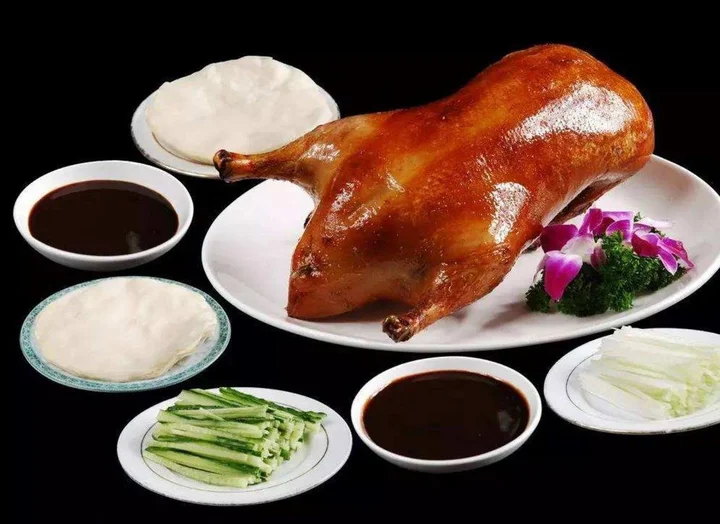
10: Braised Fish Maw
In Beijing cuisine, it includes not only court dishes, but also a group of official dishes cooked by private chefs in the government, including Tanjia dishes. Tanjia cuisine is one of the most well-known official dishes in China. It combines Cantonese cuisine and Beijing cuisine to form a style of its own. Its best practice is to "be good at cooking sea and eight treasures in broth and old fire". Among the Tanjia dishes, there is a classic housekeeping dish, braised shark fins, and now fish maw is used instead of shark fins. Therefore, braised fish maw is also a classic housekeeping dish in Tanjia cuisine. After the dish is cooked, the stewed fish maw has a fragrant soup, the fish maw is fresh and soft, light but flavorful, and the taste is very refreshing.
